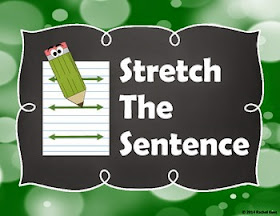1. KARAOKE
Whether you like it or not, I'm sure you have already sung your heart out at a karaoke bar or at someone's wedding. I know I have, and I can tell you it wasn't pretty!
Literally, "karaoke" means empty orchestra. We use the word to refer to singing along to a (usually bad) instrumental tune produced by a machine.
If you have read Lisa's interview here, you know this is one of the words she used to mispronounce until she got to live in Japan.
2. ORIGAMI
One of the first books I can remember flipping through was an origami book in Japanese. I couldn't understand any of the words, but the photo instructions were great. I was ecstatic when I finally got to fold my first crane. No, I haven't folded a thousand of them yet.
"Origami" is also pretty literal in meaning. It means "fold paper".
If you'd like to try your hand at a quite challenging and fun piece, watch the following video. It would be great as an art project for older kids.
3. TSUNAMI
As I'm sure you'll remember, Japan is no stranger to tidal waves. So much so that they have a word to name the kind of gigantic wave often caused by an earthquake.
"Tsu" means harbor and "nami" means wave.
4. HAIKU
This is a Japanese form of poetry. The haiku poems consist of three lines (with 5, 7, and 5 syllables).
Having students compose haiku is a great exercise because they have to be creative and concise. They need to think about what is most important to say and really concentrate on that. Have you ever had your students write haiku?
5. SUDOKU
Sudoku is a shortened word in Japanese. Thankfully, this is the word we have borrowed or would you rather say "suuji wa dokushin ni kagiru"?
This is a kind of number puzzle that, in my opinion, is highly addictive. It also involves a lot of critical thinking and children should benefit from doing them.
If you want to try them yourselves or would like your kids to try sudoku, you can find thousands of free sudoku puzzles to print at Krazydad.
6. BENTO
This is a word originally used to describe single-serving meals that can either be homemade or purchased. The original bento is composed of rice, vegetables, and fish or meat - everything arranged in a bento box.
More recently, bento has been widely used to describe the cute arrangement of food for kids meals. Here's a video if you'd like to see how to prepare your own Hello Kitty bento lunch box:
7. TYCOON
Do you know any powerful and wealthy business person? If so, you know a tycoon.
Literally, tycoon means "great lord" and was used to refer to the shoguns, military leaders in Japan.
8. MANGA and ANIME
Manga refers to the Japanese comics and they're widely popular with teenagers all over the world. Anime refers to Japanese animation movies, such as My Neighbor Totoro.
Anime is an interesting word because it is actually an abbreviated form of "animation", a word borrowed from English by the Japanese. It's quite interesting to realize that English speakers are borrowing back the word.
9.BOKEH
"Bokeh" is a Japanese word that means "blur" or "haze". In photography, it refers to a light effect that makes things look, well, blurred.
Even if you've never heard the term, I'm pretty sure you've seen it somewhere.
Check out the following set of Bokeh Digital Papers by KristyBear Designs and the FREE Stretch the Sentence resource by Rachel K Tutoring that uses a bokeh paper on the cover. (click on the images to see the resources)
10.KAWAII
I would say that the most appropriate translation for "kawaii" is "cute". However, the word has taken on a much broader sense to describe a whole aesthetics that involves pastel colors, rounded facial and body features in illustrations, cute characters (e.g. baby animals), etc.
And here's something very kawaii to end this post with:
Manga refers to the Japanese comics and they're widely popular with teenagers all over the world. Anime refers to Japanese animation movies, such as My Neighbor Totoro.
Anime is an interesting word because it is actually an abbreviated form of "animation", a word borrowed from English by the Japanese. It's quite interesting to realize that English speakers are borrowing back the word.
9.BOKEH
"Bokeh" is a Japanese word that means "blur" or "haze". In photography, it refers to a light effect that makes things look, well, blurred.
Even if you've never heard the term, I'm pretty sure you've seen it somewhere.
Check out the following set of Bokeh Digital Papers by KristyBear Designs and the FREE Stretch the Sentence resource by Rachel K Tutoring that uses a bokeh paper on the cover. (click on the images to see the resources)
10.KAWAII
I would say that the most appropriate translation for "kawaii" is "cute". However, the word has taken on a much broader sense to describe a whole aesthetics that involves pastel colors, rounded facial and body features in illustrations, cute characters (e.g. baby animals), etc.
And here's something very kawaii to end this post with:




Love the "kawaii" video, Lucy! I learned a new word today! Thanks for the interesting post! Carol
ReplyDeleteI'm glad you learned a new word to talk about the cats you're looking after :)
DeleteThanks for reading, Carol!
Love all things Japanese! I've been there twice and I published three romantic suspense novels set in Japan!!
ReplyDeleteDebbie Kemp
I guess your nihongo is probably better than mine by now!
ReplyDeleteArigatou :)